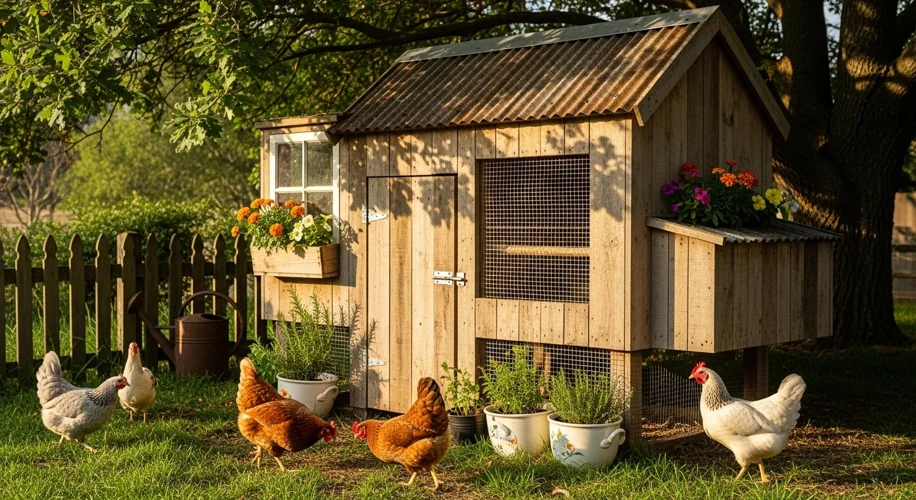There’s something incredibly rewarding about stepping out into your backyard and collecting a warm, fresh egg. For me, that simple pleasure is part of a larger, more sustainable way of living that I love to share with you all.
Many of you know my passion for gardening and growing our own food. Adding backyard chickens to the mix felt like a natural next step. It’s not just about the eggs, though that’s a huge perk! It’s about connecting with our food source, managing waste through composting, and creating a more resilient home.
Getting Started with Backyard Chickens
If you’re curious about starting your own flock, the first thing to consider is your local regulations. Many towns and cities have ordinances about keeping poultry, so it’s worth checking those out before you get too excited.
Then, there’s the coop. This is their home, so it needs to be safe, secure, and comfortable. It needs to protect them from predators like foxes, raccoons, and hawks, and provide shelter from the elements. I’ve found that a coop with good ventilation, roosting bars, and nesting boxes makes for happy hens. Size matters too – give them enough space to move around comfortably.
Choosing Your Flock
When it comes to breeds, there’s a whole world to explore! For beginners, breeds like the Rhode Island Red, Plymouth Rock, or Australorp are often recommended. They’re known for being good layers and generally having friendly temperaments. Many people also love the unique personalities of breeds like the Wyandotte or the crested Polish chickens.
How many chickens should you get? A good rule of thumb is that three to six hens can provide a consistent supply of eggs for a small family without being overwhelming. They are social creatures, so keeping at least two or three is ideal for their well-being.
Daily Life with Chickens
Once your coop is set up and your chickens have arrived, your daily routine will involve a few key things: providing fresh food and water, collecting eggs, and ensuring their coop is clean. Chickens love a varied diet. While their main food source is commercially prepared layer feed, they also enjoy kitchen scraps (avoiding things like avocado pits, citrus, and raw potato peels), garden greens, and bugs they might find foraging.
Feeding them kitchen scraps is a fantastic way to reduce food waste. Vegetable peelings, leftover grains, and fruit scraps are usually a hit. Remember to introduce new treats gradually.
The Egg-stra Perks
And then there are the eggs! Freshly laid eggs have a richer flavor and deeper yolks than store-bought ones. I love using them in everything from my morning scramble to baking. Their nutritional profile is also impressive. Plus, knowing exactly what your chickens are eating gives you peace of mind about the quality of the eggs you’re consuming.
Beyond the eggs, chickens are fantastic compost turners. Their manure, when properly composted, is a powerful fertilizer for your garden. It’s a closed-loop system that benefits your entire backyard ecosystem.
Keeping chickens has brought a new dimension of joy and sustainability to my life. It’s a hands-on way to learn about animal care, reduce waste, and enjoy some of the freshest food possible. If you’ve been on the fence, I hope this gives you a glimpse into the rewarding world of backyard chicken keeping.

